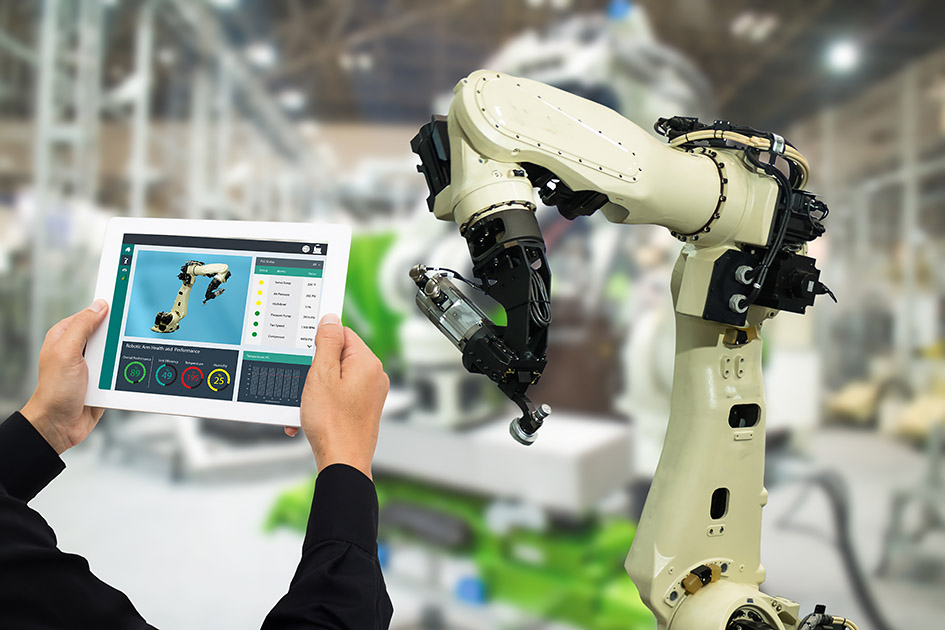Topics
CompaniesinTransition
Companies and industries of all sizes are key players in a sustainable economic and social system of tomorrow. New design opportunities are emerging and crises are making system changes and leap innovations more necessary than ever. New business models and lifestyles are fundamentally transforming our economy and society.
Shaping this transformation dynamic into a sustainable economic system is essential, otherwise today's changes will mean tomorrow's economic, social, and ecological conflicts. This is being recognised increasingly by political decision makers, investors, consumers, and company business partners. They are setting new standards for sustainable business and calling on companies to evaluate and disclose their positive contributions to social development along their value chain and their impacts on the environment and climate. Redefining strategies for sustainable corporate transformation and thus contributing to solving global environmental and social problems is both an opportunity and a challenge.

Companies shape global value chains and influence consumption patterns. They can develop resource-efficient, and climate-friendly technologies, products and services for the growth markets of today and tomorrow. They can also reduce the pressure on the massive construction and expansion of infrastructures that is necessary worldwide, and thus reducing the global and local demand for raw materials and energy – if they are designed in an ecologically intelligent and socially innovative way. Therefore, transformation through innovation for climate protection and sustainability can only be designed with businesses and their core competencies.
Corporate Strategy, Cultural Change and Qualification
Against the background of major societal challenges, companies face high expectations when it comes to designing their strategy and transformation processes. Pressure from external stakeholders for sustainable corporate management is increasing. Politicians are introducing new regulations and verification requirements. Consumers and financial market players are increasingly taking sustainability into account in their purchasing, financing, and investment decisions. They call on companies to quantify their impact on the environment and society and to disclose it in a reliable manner. In order for a company not only to assert itself against the competition in this dynamic, but also to play an active role in shaping it, a new entrepreneurial self-image combined with courageous and innovative strategies supported by a change in corporate cultures is necessary. This requires suitable framework conditions and individual transformation concepts that support companies in their change processes.
As an independent institute, the Wuppertal Institute conducts research on both the political-regulatory framework for economic transformation and the necessary transformation concepts for companies – such as sustainability assessment, strategy and roadmap development, qualification, and communication.
Innovations in Products and Services
The sustainability transformation can only succeed if companies allow themselves to be guided by an expanded (system) innovation concept. In order to test appropriate innovations, companies will need their own development "laboratories", so-called real-world laboratories in which they can better understand the impacts of "sustainable and transformative products and services" and where internal company innovation processes are supported. For the Wuppertal Institute, the focus of its company-related research is on industries of particular relevance to emissions or resources and on "enabler" sectors/organisations, such as the education sector, the finance and insurance sector, information and communication service providers, logistics, and plant and mechanical engineering.
Circular Economy as a New Cross-Cutting Sustainability Issue
One of the biggest and most important current environmental issues is solving the climate problem. This requires far-reaching efforts by society, politics, and business. 50 per cent of global emissions are attributable to raw material extraction – which is why, in addition to the necessary structural changes in industry, a rethinking of the linear economy towards a circular economy is also necessary. This means that we need a systemic way of thinking – and new forms of cooperation and business models need to be developed. Further information on this can be found on the circular economy topic page. The Wuppertal Institute can offer companies targeted support on this path.
Future Paths for Energy-Intensive Industry
The energy-intensive basic materials industry – in particular, steel production, basic chemicals, the aluminium industry, glass, paper, and cement production – plays a central role in drastically reducing global energy and resource consumption. After all, these industries produce the basic materials for infrastructures, buildings, machinery, and consumer goods. The Wuppertal Institute shows the way forward with energy system and scenario analyses, analyses of resource flows along the value chains, and the specific innovation systems of the industries involved.
Sustainable Finance as a Driver for Economic Transformation
Financial market players shape capital flows needed to finance the required transformation towards a climate-neutral and sustainable economy. The European Union's New Green Deal is accompanied by a set of new rules for financing economic transformation – such as the EU Sustainable Finance Taxonomy, Climate Risks in Non-Financial Reporting, and the Green Bond Standard. These affect not only financial market actors but also multinational companies and, indirectly, small and medium-sized enterprises in the real economy. The Wuppertal Institute supports this process in its role as an impact-oriented think tank. It examines sustainability criteria and quantifies the impact of financial products, investments, and business strategies – especially with regard to the Paris climate goals. The focus is on the transformation of the "grey" economy, i.e. on changing from conventional production methods and markets towards a climate-friendly, ecologically compatible, and socially equitable way of doing business.
The Challenges Facing the Food Industry
28 per cent of resource consumption and 17 per cent of greenhouse gas emissions can be attributed to Europe's food industry. Changing dietary habits, such as increasing out-of-home catering and industrial manufacturing, provide a challenging starting point for sustainable change. The Wuppertal Institute provides the basis for a transformation in the food industry with comprehensive analyses of food production and processing along the various links of the supply chain and by identifying central ecological and social challenges.
Contact
Markus Kühlert can be contacted regarding sustainability at companies and Dr. Henning Wilts for questions relating to the circular economy.

The economy is facing major transformation challenges. The transition to a greenhouse gas-neutral economy and to a circular economy are two examples. In our research, we look how this can be achieved with new processes, products and business models and how business, politics and society must work.
Topics
You find more information on the transformation of the economy here:
News
Here you find up-to-date information on research findings and activities in the field of economy and business and industries.
News on the topic

Clean Technologies Can Harmonise Steelmaking and Climate Protection
A new report examines eight ways to reduce CO2 emissions from steelmaking – and finds some methods have clear advantages over others

Achieving Climate Neutrality with Direct Air Capture
Article presents for the first time the costs and resource requirements of a possible rollout in Germany in 2045

Green financing: A Catalyst for Sustainable Energy Transition in Rural China
Flagship report on green financing in China and Europe published
Publi-cations
You find all scientific publications on our publication server:
Projects
Research with and for business and industries or sectors. In the following you find selected sample projects. A complete list is available here.
